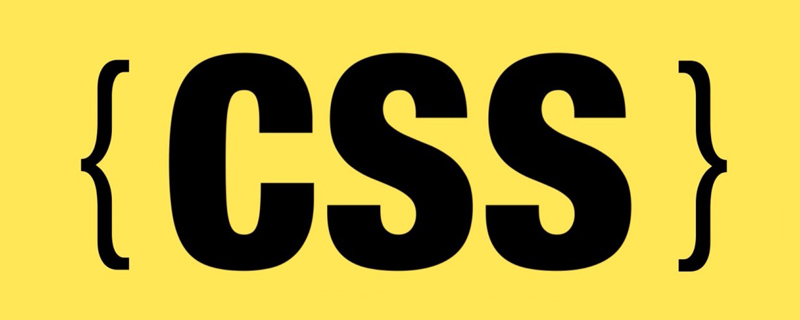Today, learn the display method in css
1. Display method:
The default display type of the box can be modified through the properties of display
Properties: display
Display 's 取:
1 , ## None ##: Let the generated elements have no box, so that the generated elements are not Show, hide. Once the value is set to none, all content within the element is no longer displayed and no longer takes up document space. 2
,block: block, let any element be displayed like a block level 1 The characteristics of the block are:
1. 行 行 行
2. You can set it separately and high
# 2..
block use.1, Inline elements should be displayed like block-level elements.
2, Let the block-level elements change from hidden
(display:none;) to displayed(display: Block;) 3 ,
## b: Line, let any element display # inline Features: Multiple elements are displayed in one line
2
, the elements in the line are hidden from# (Display: None;) ## to display
(Display: Inline)
## 4, inline-block: Inline block, the element itself is an inline element, but it has the characteristics of a block(can Modify the width and height)
,is the inline block element
Use Display effect
1, Visibility Attribute
作: Implementing element visibility( display /
Hide) Values: 1, visible
: Default value, the element is visible.
2, hidden: The element is invisible and hidden, but the space is still occupied.
3, collapse: Used on tables, you can delete a row or column without affecting the layout of the table.
# 2 , OPACITY Attribute ##:
## Set the opaque level of the element# OPACITY: 0-1 (including # 0 # and
1) ## The larger the value, the more opaque 3 , Vertical-Align attribute #:
# Set vertical alignment
Values: top / middle /bottom
(top, middle, bottom) Baseline:Baseline alignment (default alignment) Special usage:
For the inline block (img) element to be defined, we can define the alignment of the text on the side and the current element.
For example: Select I want the following text, link 2 to become an inline block, let link 3Becomes a block, link4disappears
<!DOCTYPE html >
<head>
<title>文本格式</title>
<meta charset="utf-8" />
<style>
a{
border:1px solid black;
width:70px;
height:30px;
background-color:silver;
}
</style>
</head>
<body>
<a href="#">链接1</a>
<a href="#" style="display:inline-block;">链接2</a>
<a href="#" style="display:block;">链接3</a>
<a href="#"style="display:none;">>链接4</a>
</body>
</html>4, cursorattributecursor :
By default, the cursor display on the web page will show different appearances according to different elements.
Hyperlink: Hand Shape
Text: I
Button: Arrow
In css, you can change the cursor display effect through the cursor attribute to provide customers with A visual hint.
Style
completely: Waiting for
# Help:?
The above is the detailed content of Let me teach you what are the display methods in css?. For more information, please follow other related articles on the PHP Chinese website!
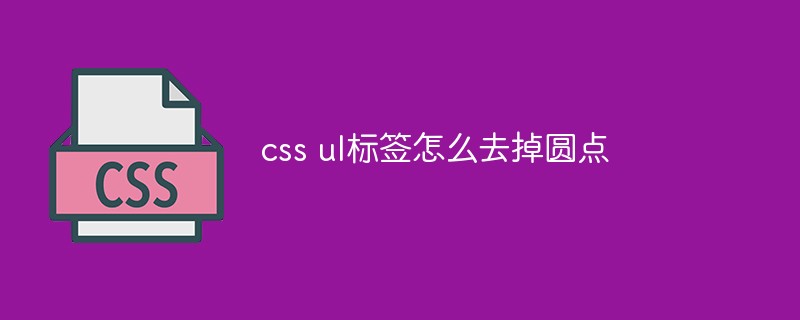 css ul标签怎么去掉圆点Apr 25, 2022 pm 05:55 PM
css ul标签怎么去掉圆点Apr 25, 2022 pm 05:55 PM在css中,可用list-style-type属性来去掉ul的圆点标记,语法为“ul{list-style-type:none}”;list-style-type属性可设置列表项标记的类型,当值为“none”可不定义标记,也可去除已有标记。
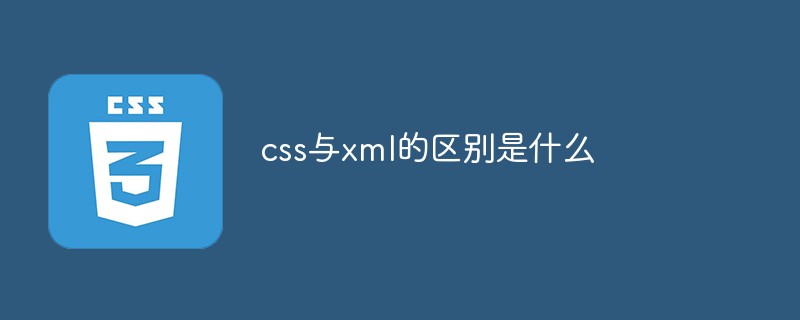 css与xml的区别是什么Apr 24, 2022 am 11:21 AM
css与xml的区别是什么Apr 24, 2022 am 11:21 AM区别是:css是层叠样式表单,是将样式信息与网页内容分离的一种标记语言,主要用来设计网页的样式,还可以对网页各元素进行格式化;xml是可扩展标记语言,是一种数据存储语言,用于使用简单的标记描述数据,将文档分成许多部件并对这些部件加以标识。
 css3怎么实现鼠标隐藏效果Apr 27, 2022 pm 05:20 PM
css3怎么实现鼠标隐藏效果Apr 27, 2022 pm 05:20 PM在css中,可以利用cursor属性实现鼠标隐藏效果,该属性用于定义鼠标指针放在一个元素边界范围内时所用的光标形状,当属性值设置为none时,就可以实现鼠标隐藏效果,语法为“元素{cursor:none}”。
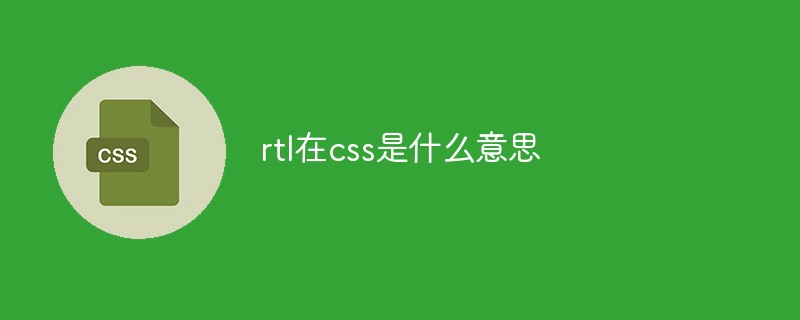 rtl在css是什么意思Apr 24, 2022 am 11:07 AM
rtl在css是什么意思Apr 24, 2022 am 11:07 AM在css中,rtl是“right-to-left”的缩写,是从右往左的意思,指的是内联内容从右往左依次排布,是direction属性的一个属性值;该属性规定了文本的方向和书写方向,语法为“元素{direction:rtl}”。
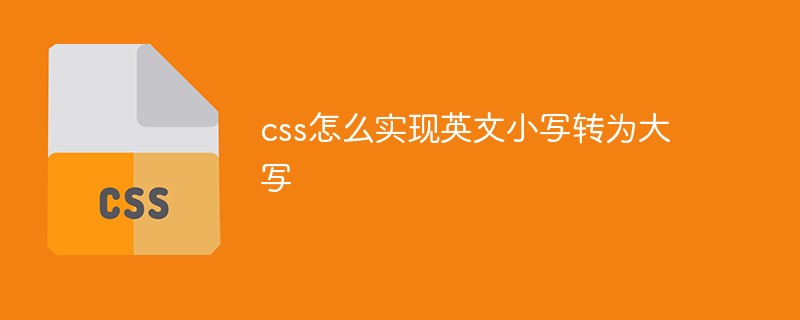 css怎么实现英文小写转为大写Apr 25, 2022 pm 06:35 PM
css怎么实现英文小写转为大写Apr 25, 2022 pm 06:35 PM转换方法:1、给英文元素添加“text-transform: uppercase;”样式,可将所有的英文字母都变成大写;2、给英文元素添加“text-transform:capitalize;”样式,可将英文文本中每个单词的首字母变为大写。
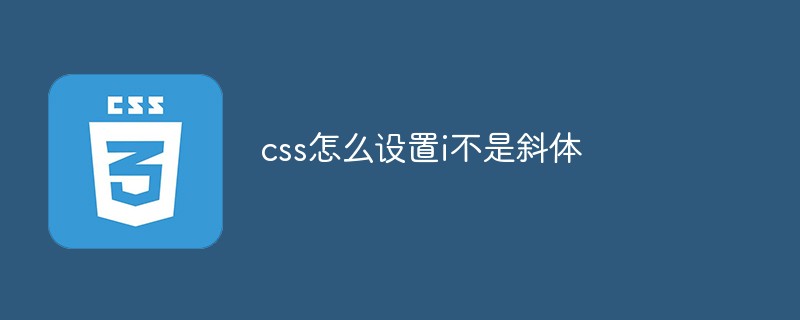 css怎么设置i不是斜体Apr 20, 2022 am 10:36 AM
css怎么设置i不是斜体Apr 20, 2022 am 10:36 AM在css中,可以利用“font-style”属性设置i元素不是斜体样式,该属性用于指定文本的字体样式,当属性值设置为“normal”时,会显示元素的标准字体样式,语法为“i元素{font-style:normal}”。
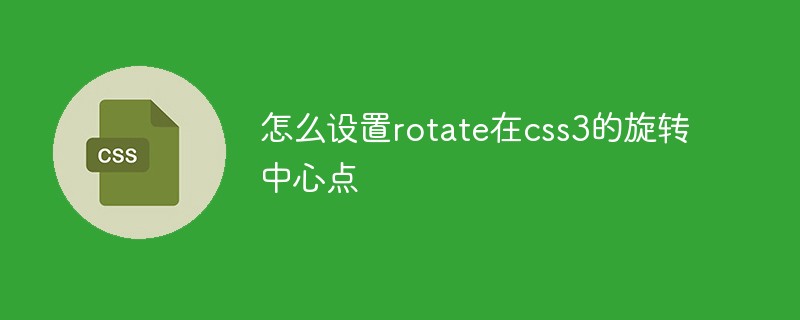 怎么设置rotate在css3的旋转中心点Apr 24, 2022 am 10:50 AM
怎么设置rotate在css3的旋转中心点Apr 24, 2022 am 10:50 AM在css3中,可以用“transform-origin”属性设置rotate的旋转中心点,该属性可更改转换元素的位置,第一个参数设置x轴的旋转位置,第二个参数设置y轴旋转位置,语法为“transform-origin:x轴位置 y轴位置”。


Hot AI Tools

Undresser.AI Undress
AI-powered app for creating realistic nude photos

AI Clothes Remover
Online AI tool for removing clothes from photos.

Undress AI Tool
Undress images for free

Clothoff.io
AI clothes remover

AI Hentai Generator
Generate AI Hentai for free.

Hot Article

Hot Tools

SublimeText3 English version
Recommended: Win version, supports code prompts!

Safe Exam Browser
Safe Exam Browser is a secure browser environment for taking online exams securely. This software turns any computer into a secure workstation. It controls access to any utility and prevents students from using unauthorized resources.

Zend Studio 13.0.1
Powerful PHP integrated development environment

DVWA
Damn Vulnerable Web App (DVWA) is a PHP/MySQL web application that is very vulnerable. Its main goals are to be an aid for security professionals to test their skills and tools in a legal environment, to help web developers better understand the process of securing web applications, and to help teachers/students teach/learn in a classroom environment Web application security. The goal of DVWA is to practice some of the most common web vulnerabilities through a simple and straightforward interface, with varying degrees of difficulty. Please note that this software

mPDF
mPDF is a PHP library that can generate PDF files from UTF-8 encoded HTML. The original author, Ian Back, wrote mPDF to output PDF files "on the fly" from his website and handle different languages. It is slower than original scripts like HTML2FPDF and produces larger files when using Unicode fonts, but supports CSS styles etc. and has a lot of enhancements. Supports almost all languages, including RTL (Arabic and Hebrew) and CJK (Chinese, Japanese and Korean). Supports nested block-level elements (such as P, DIV),





